Duke Energy's plan to build $3B gas-fired plant called 'insane and immoral' at Bloomington field hearing
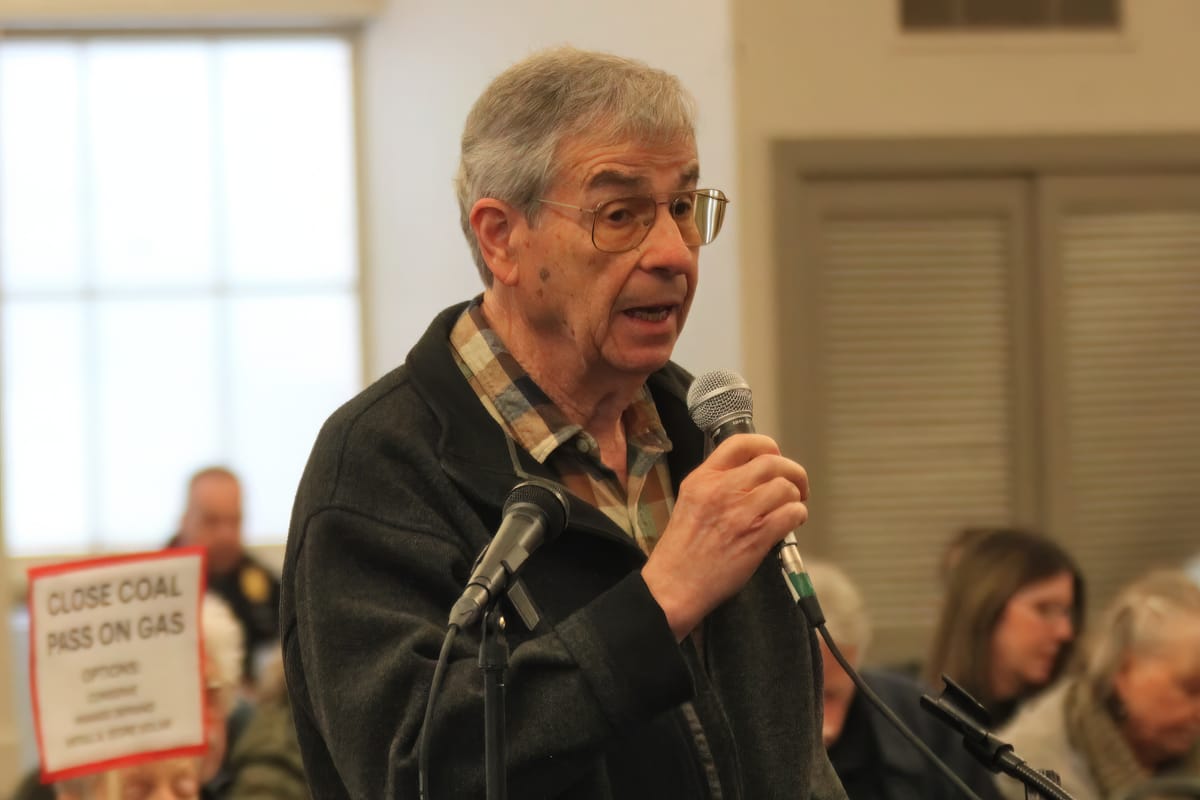
On Thursday, around 50 people gathered at the Bloomington Convention Center to give testimony at a field hearing about a proposal from Duke Energy that would increase electric bills to help pay for its planned construction of a new natural gas-fired plant.
The new plant would be located at its Cayuga Generating Station site in Vermillion County.
The proposed facility would replace two coal-fired plants that are over a half century old. The new plant would also mean increasing output by almost 50%—to a total winter capacity of 1,476 megawatts, compared to the 1,005 megawatts currently generated by the coal-fired plants.
Thursday's hearing was hosted by the Indiana Utility Regulatory Commission (IURC) and the Indiana Office of Utility Consumer Counselor (OUCC), which is the state agency that is supposed to represent ratepayer interests.
Around a dozen people spoke, none in favor of the proposal—because the new natural gas-fired plants would still rely on non-renewable fossil fuel. While many of the speakers acknowledged that it's a positive step to retire the coal-fired plants, they also called on Duke to replace the coal plants with solar- or wind-based power facilities, instead of continuing to use a fuel that contributes to greenhouse gas emissions that cause climate change.
For Duke customers who were not able to attend Thursday's field hearing, written comments can be sent to: Public Comments, Indiana Office of Utility Consumer Counselor, 115 W. Washington St., Suite 1500 South Indianapolis, IN 46204. Comments can also be sent by email to uccinfo@oucc.IN.gov Written comments are supposed to include a name, city and zip code, and a reference to Cause No. 46193.
Timeline
- May 1, 2025 – Deadline for public comments
- May 8, 2025 – OUCC testimony due
- May 29, 2025 – Rebuttal testimony may be filed by Duke and other intervenors
- June 19, 2025 – Start of IURC evidentiary hearing
- Late summer 2025 – Final IURC order expected
To follow the evolution of Duke Energy's request, use the IURC docket.
It was on Feb. 13, 2025, when Duke filed its petition with the IURC, requesting several approvals related to the construction of two combined-cycle natural gas-fired units at the existing Cayuga Generating Station.
The current request from Duke is not for a change to its basic electric rate, like the one it asked for last year. Duke ultimately received authorization for the basic rate increase, though not as much as the power company had asked for. Duke had asked for a rate increase that would generate an additional $491 million, but at the end of January 2025, the IURC authorized Duke to increase its rates to produce additional operating revenue of $295 million.
What Duke is requesting this time around is cost recovery for the $3-billion project—with Construction Work in Progress (CWIP) ratemaking through a proposed Generation Cost Adjustment (GCA) tracker. Such provisions are called "trackers" because they are supposed to track specific costs that utilities incur over time—in this case the cost of constructing the gas-fired plants, which will eventually total around $3 billion. Trackers allow utilities to recover such costs more quickly and with less regulatory overhead compared to making a full rate case.
According to its filing, Duke estimates that the impact on a retail customer bill from the cost recovery in the first GCA tracker filing after approval would be about $1.87 more for a typical residential customer, who uses 1,000 kWh per month.
But Benjamin Inskeep, who is the program director for Citizens Action Coalition, told The B Square that even if the impact on a customer's bill is only $1.87 per month per customer for the first six-month period, that is going to increase in each six-month period until the plant actually gets built and goes into operation.
By 2030, a typical customer will be paying over $16 a month more, just for the capital cost to build the plant, not including the fuel cost, according to Inskeep's math.
While the cost to customers got some airtime during Thursday's hearing, sparking the most criticism was the idea that Duke is building a big gas-fired facility, perpetuating reliance on fossil fuel, instead of investing in solar, wind, and battery storage.
The criticism came from young and old alike. Seventeen-year-old Bloomington High School student Max Pritchett expressed concern about the long-term environmental impacts of the proposed natural gas power plants. He pointed out that these plants are set to start operating around 2030 and could potentially run for 40-50 years, which would mean losing any chance of recovering from the climate crisis and restoring the environment, Pritchett said.
Steven Vigdor, retired professor of physics at Indiana University, testified: "The climate is going to start changing non-linearly within the next couple of decades, as we pass various tipping points, such as that for melting the Greenland ice sheet." Vigdor continued: "It is, quite frankly, at this point, insanity to add fossil fuel burning capacity. It is insane and immoral, no matter what our president says, no matter what the Indiana state legislature says."
During this year's state legislative session, SB 178 was enacted, which says "it is the continuing policy of the state to recognize natural gas and propane as 'clean energy' or 'green energy' for purposes of any state or federal program that provides funding or other incentives…"
Matt Pierce, a Democrat who represents state House District 61, which encompasses most of Bloomington, which is served by Duke Energy, argued unsuccessfully against SB 178 on the House floor. Pierce said:
Generally, in the generation phase, [gas-fired plants are] going to be less carbon than coal. And we don't have to worry about coal ash ponds with natural gas. So I get it, it's better. I would agree with that. But cleaner is not clean. Cleaner is not green. It's really kind of battling reality here with this bill.
And apparently the reason why we're doing this is, we think that somebody is going to show up and decide we have to have some incentive programs to promote fossil fuels like natural gas and propane. And they're doing just fine on their own.
If you might have noticed, there's kind of a battle around here about whether you get rid of the coal plants and replace them with natural gas. Now my concern is that the great thing about renewable energy, whether it's wind or solar, there's no fuel cost once you build that wind turbine, or you put in that solar field. You don't get charged by Mother Nature for what's going to generate that energy. Whereas with fossil fuels, whether it's coal or natural gas or propane, you're always going to have a fuel charge. You're going to have to pay for the fuel to run the thing.
And we already have in code that we have these things called fuel cost adjustments, where the utility gets to come in periodically and say, the price of coal went up, the price of gas went up, so I need more money, and if it goes down, they're constantly adjusting it. If we could get to a clean energy economy, a true clean energy economy, we wouldn't have to be worrying about all these ups and downs in fuel costs, and we would have truly clean energy.
Map: Duke Energy's service area
Photos: IURC Field Hearing, Bloomington, Indiana (April 17, 2025)

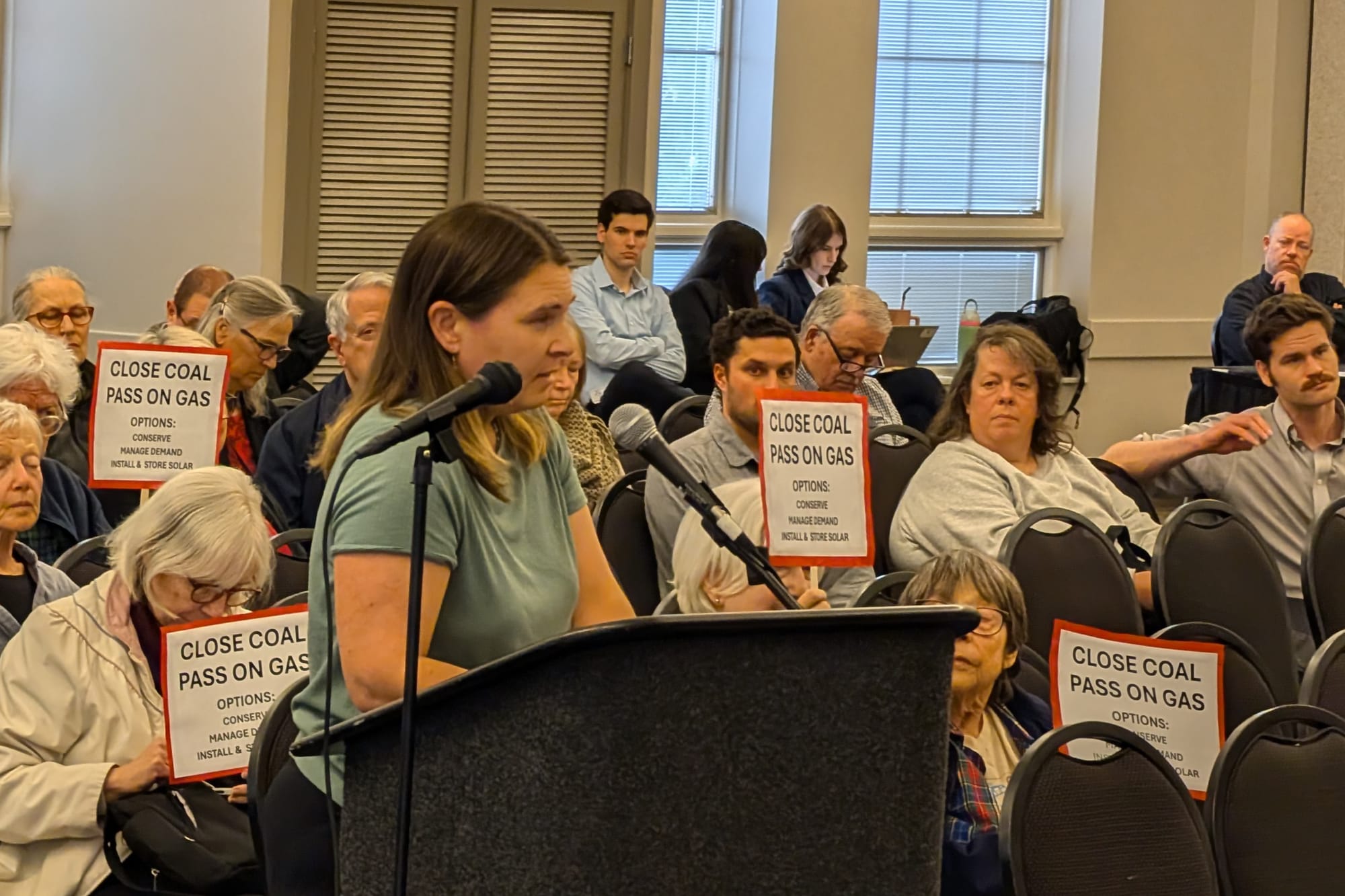
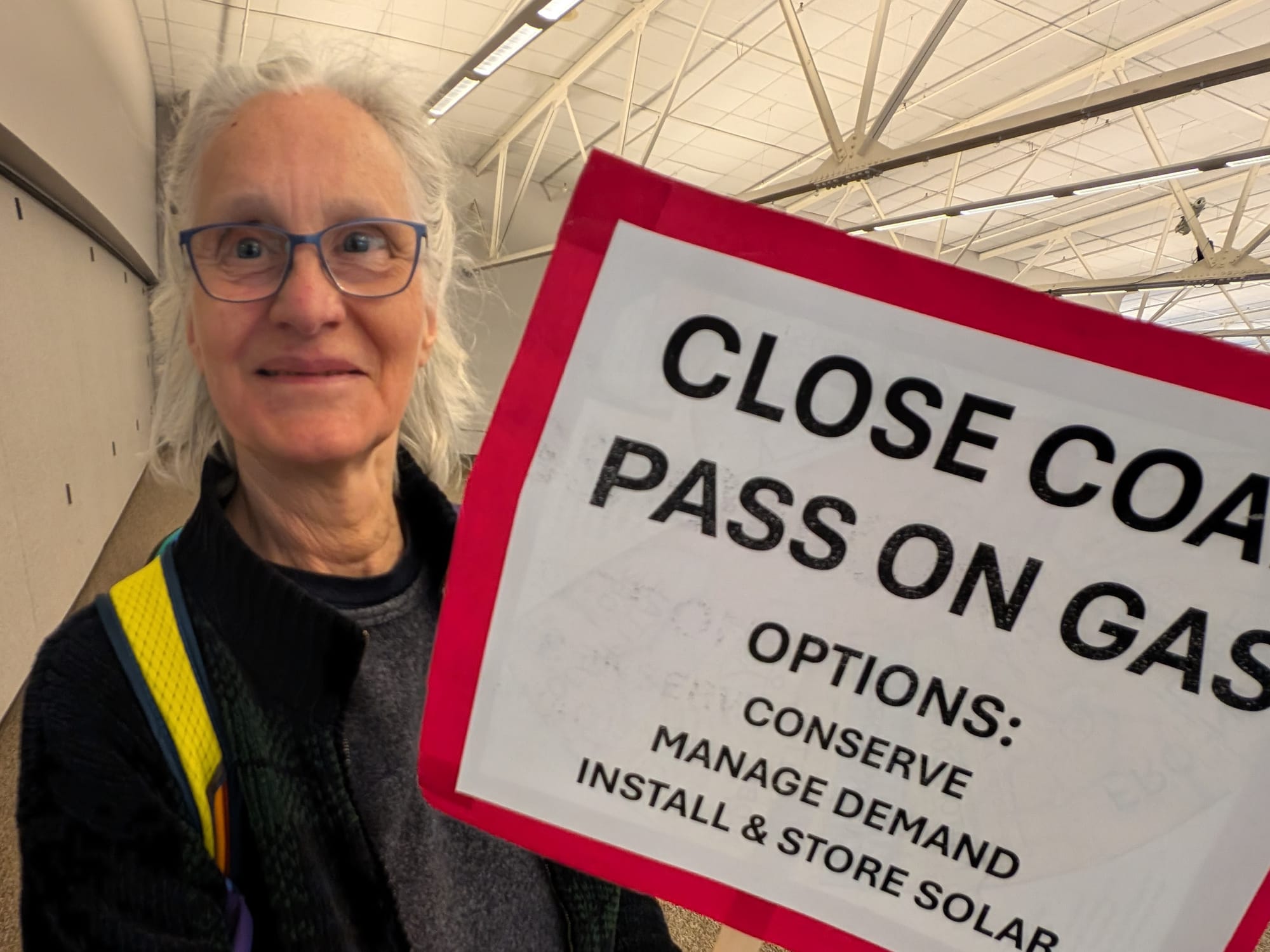
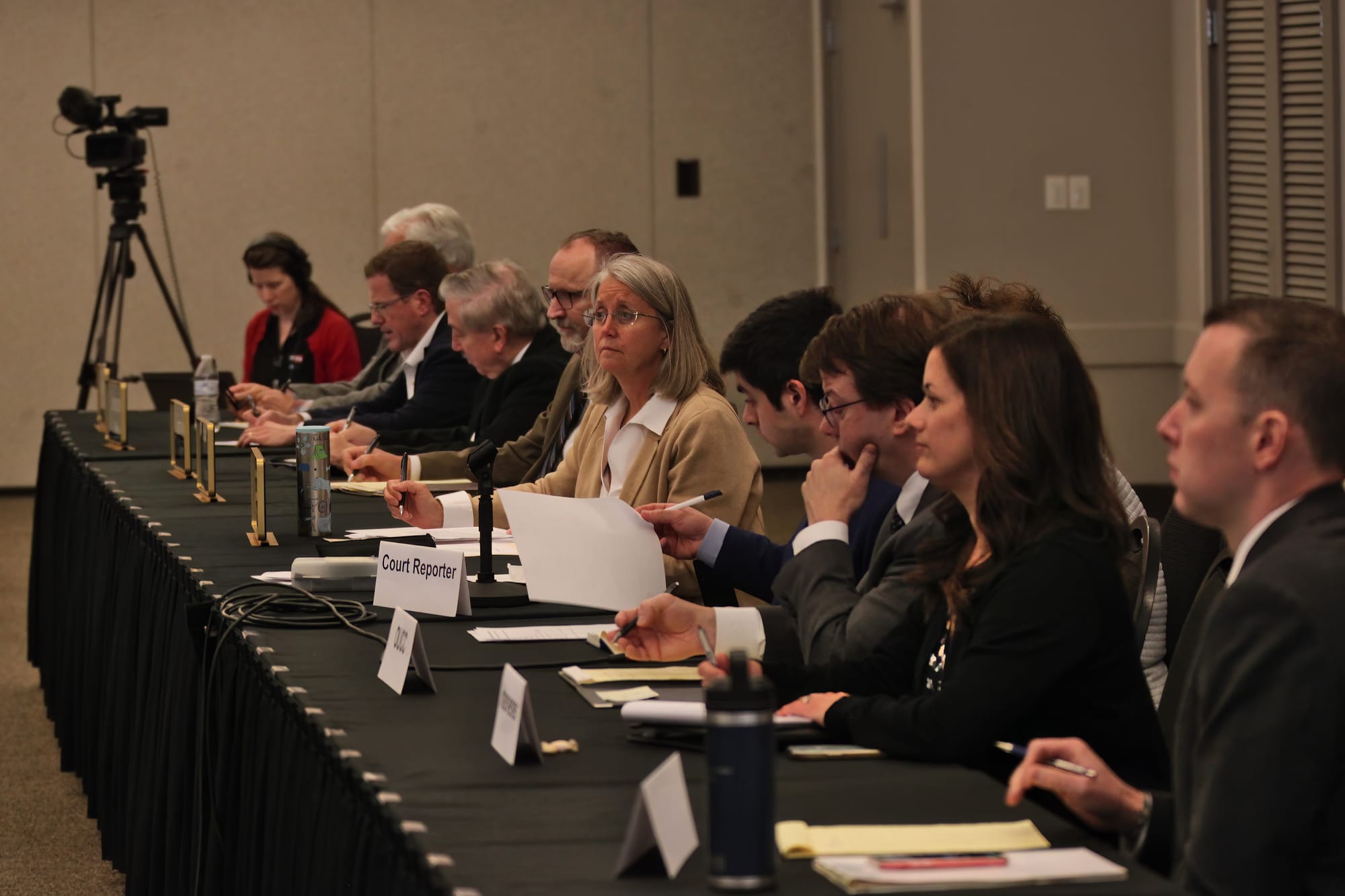
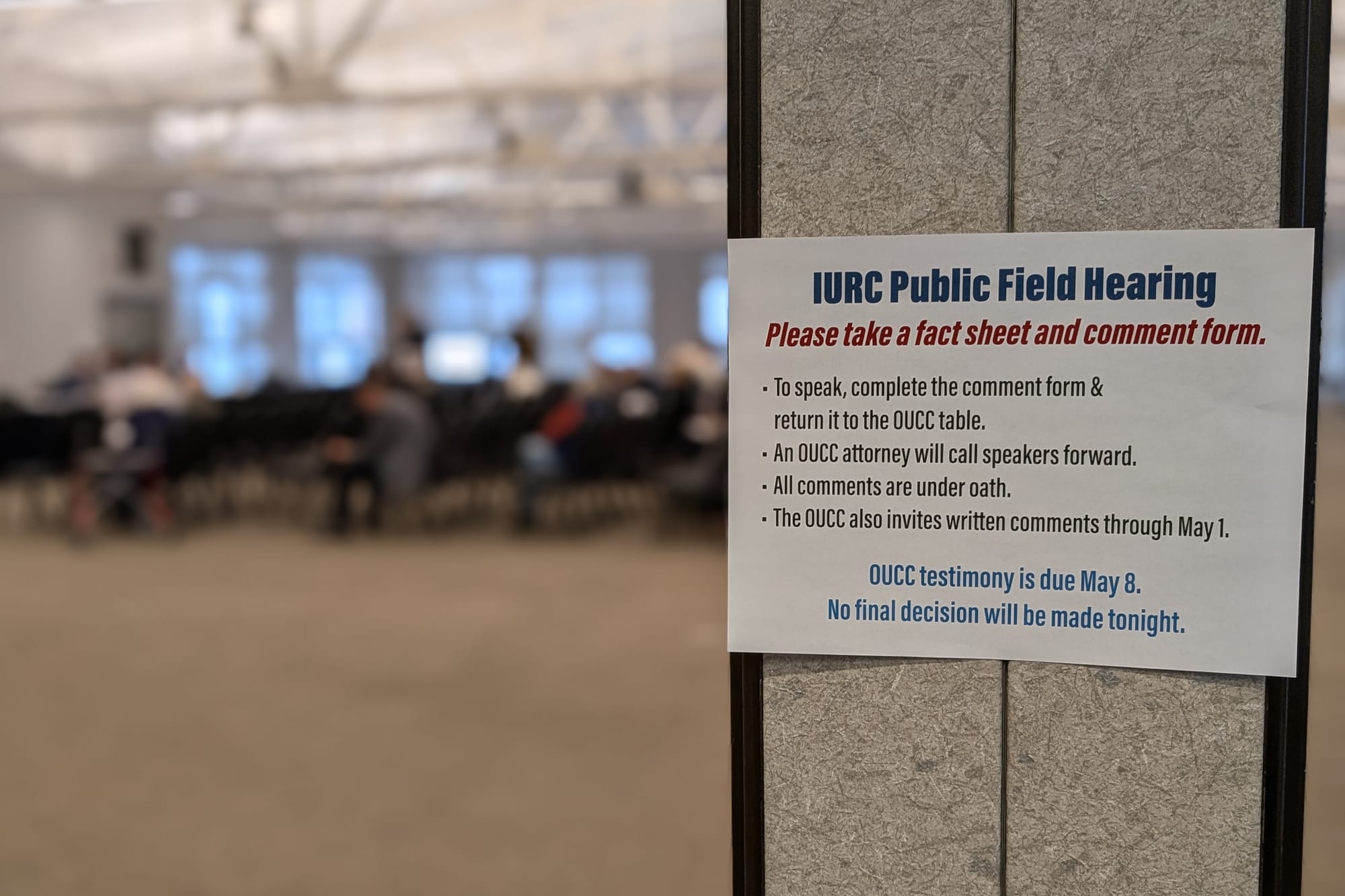

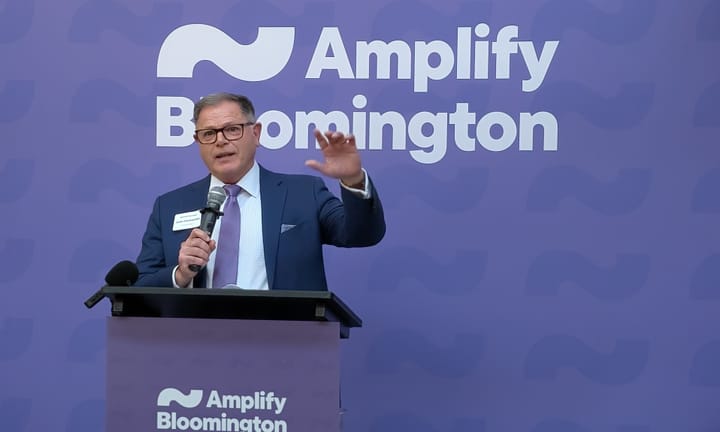


Comments ()